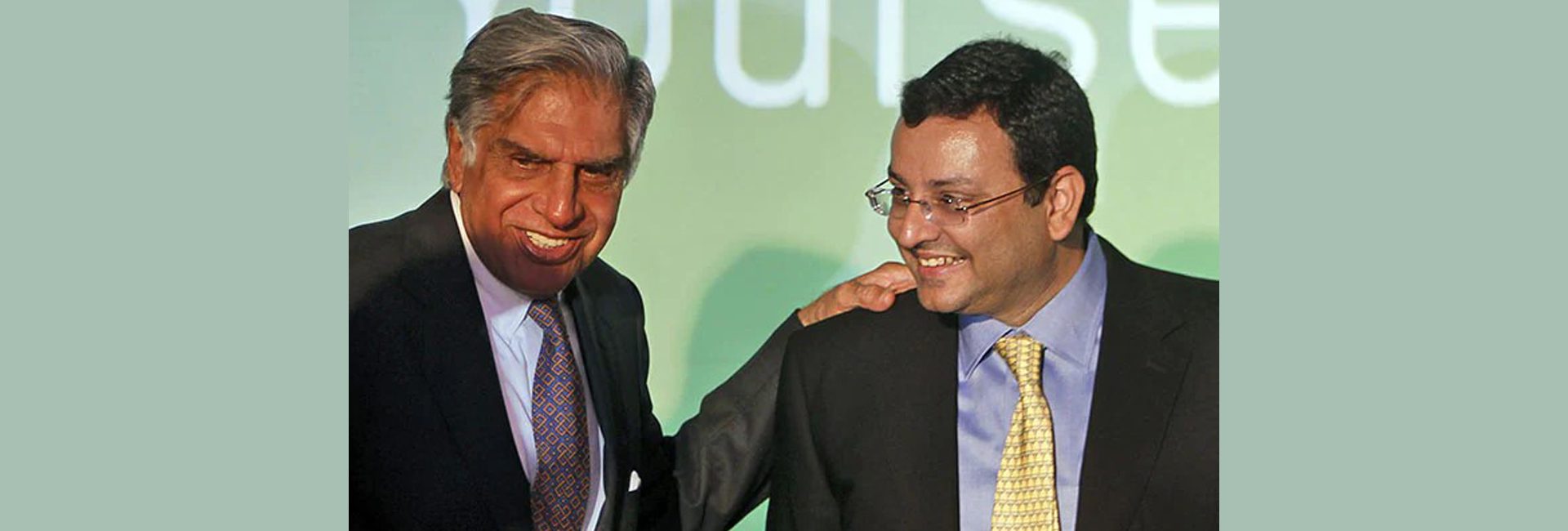The Tata Group, one of the most iconic and enduring names in global business, has transcended its origins in India to become a powerhouse with a presence in over 175 countries. Founded by Jamshedji Tata in 1868, the conglomerate is not just one of India’s oldest industrial enterprises but also one of the world’s most diversified multinational corporations. Tata’s global journey began long before globalization was a common buzzword, with Jamshedji Tata’s ambition to see India compete on the world stage. Later, under the leadership of visionary figures like JRD Tata and Ratan Tata, this legacy not only upheld but expanded through strategic acquisitions and carefully planned global ventures, which are leaders in their respective fields with worldwide influence.
The Tata Group’s global expansion is a story of ambition, innovation, and commitment to responsible business. Its subsidiaries, including TCS, IHCL, Tata Motors, Tata Steel, and Tata Power, are transforming industries and lives worldwide. From providing cutting-edge IT solutions in North America and luxury hospitality in Europe to leading the electric vehicle revolution in Asia and shaping the future of green energy, Tata’s influence is far-reaching.
With operations spanning six continents and over one million employees globally, Tata has grown into a symbol of India’s industrial prowess and its commitment to responsible business practices. Whether it’s through the cutting-edge technology of Tata Consultancy Services (TCS), the luxury experiences offered by Indian Hotels Company Limited (IHCL), or the green mobility revolution spearheaded by Tata Motors, Tata’s impact is profound and far-reaching. The group’s influence goes beyond economic contributions; it plays a pivotal role in shaping industries, setting sustainability standards, and fostering innovation that benefits millions around the world.
Global Indian explores the top five flagship Tata companies that exemplify the global reach and transformative impact of this Indian multinational empire.
Tata Consultancy Services (TCS): Global IT Transformation
In the early 1990s, as the IT services industry was becoming a global phenomenon, Ratan Tata made a bold move to position TCS as a world leader. Rather than restricting its operations to India, TCS set its sights on international markets, beginning with the United States and Europe. Ratan Tata’s vision was clear: to make TCS a household name globally by delivering innovative technology solutions tailored to meet diverse client needs.

North America – The Big Leap : In 1996, TCS opened its first major office in North America, quickly securing contracts with Fortune 500 companies. The American tech boom offered an unprecedented opportunity for growth, and TCS seized it, becoming a go-to partner for companies looking to optimize their operations through technology. Under Ratan Tata’s leadership, TCS expanded its workforce in the U.S., which now includes over 30,000 employees working onshore, delivering key solutions in cloud computing, cybersecurity, and AI. Today, TCS’s revenue from North America accounts for a significant portion of its total earnings, reflecting the impact of Ratan Tata’s early international ambitions.
Europe – Innovation Hubs : In the early 2000s, TCS expanded aggressively into Europe, setting up innovation hubs in the UK, Germany, and France. These hubs not only provided consulting and IT services to European companies but also drove innovation in sectors such as finance, healthcare, and manufacturing. Ratan Tata’s insistence on quality and service excellence helped TCS gain a reputation as a trusted partner among European businesses. Today, TCS operates in over 46 countries, with more than 150 offices and innovation centers worldwide, solidifying its role as a truly global IT titan.
Indian Hotels Company Limited (IHCL): Global Luxury Hospitality
As global tourism boomed in the early 2000s, Ratan Tata recognized the opportunity to elevate IHCL to a world-class brand. While the Taj Mahal Palace in Mumbai had already set the gold standard for Indian hospitality, Ratan Tata sought to expand that legacy globally. Under his leadership, IHCL aimed to offer the same level of opulence and service in international markets, positioning itself as a premier choice for luxury travellers.

United Kingdom – Redefining British Elegance : In 2005, IHCL acquired The Pierre, a historic hotel in New York, and St. James’ Court in London. Ratan Tata’s vision for IHCL was to tap into two of the most prestigious hospitality markets in the world. St. James’ Court, located near Buckingham Palace, has become a symbol of Indian luxury in the UK, regularly hosting diplomats, business leaders, and celebrities. IHCL’s commitment to providing unparalleled service helped it gain a loyal international clientele, propelling it to the forefront of the global luxury market.
Middle East – Expanding into Luxury : In the 2010s, Ratan Tata guided IHCL into the Middle Eastern market, opening luxury hotels like the Taj Dubai. With a focus on combining local culture with Indian hospitality, IHCL quickly gained a foothold in the region, catering to high-end tourists and business travelers alike. Today, with over 200 hotels across 100 locations globally, IHCL is synonymous with luxury and world-class service, continuing to expand its global influence in hospitality.
Tata Motors: Global Expansion Through Innovation
Tata Motors, already a leader in India’s automotive sector, made a transformative decision under Ratan Tata’s leadership in 2008 to expand its global footprint by acquiring the iconic British luxury brands Jaguar and Land Rover (JLR). This bold move allowed Tata Motors to immediately establish a strong presence in Europe and North America, transforming its brand into a global automotive player.

United Kingdom – Jaguar Land Rover Renaissance : In 2008, Tata Motors’ acquisition of JLR for $2.3 billion marked a turning point for the company. While JLR had been struggling financially under previous ownership, Ratan Tata’s guidance brought in much-needed investment and management expertise, leading to a renaissance for both brands. Jaguar and Land Rover experienced a resurgence in global demand, thanks to new models like the Range Rover Evoque and Jaguar XF. Under Tata’s stewardship, JLR became a symbol of British engineering excellence with a global appeal, exporting luxury vehicles to markets across North America, Europe, and Asia.
Electric Vehicles – Pioneering Green Mobility : Tata Motors has also become a leader in electric vehicles (EVs), with its electric models like the Nexon EV and Tigor EV gaining traction not only in India but in international markets as well. Ratan Tata’s vision for sustainable mobility has positioned Tata Motors at the forefront of the global EV revolution, with plans to expand its EV offerings across Europe and Southeast Asia. Tata Motors’ global strategy reflects its commitment to lead in both innovation and environmental responsibility.
Tata Steel: Global Industrial Impact
Tata Steel, founded in 1907, had always been a key player in the Indian market. However, the 21st century saw the company expand globally under Ratan Tata’s leadership, becoming one of the largest steel producers in the world through strategic acquisitions and partnerships.

Europe – The Corus Acquisition : In 2007, Tata Steel made its largest acquisition by purchasing Corus Group, a British-Dutch steel company, for $12 billion. Ratan Tata’s strategic vision propelled Tata Steel into the global arena, making it one of the world’s top steel producers. With operations in the UK and the Netherlands, Tata Steel Europe supplies high-quality steel to industries such as automotive and construction across the continent. The Corus acquisition not only expanded Tata Steel’s market presence but also brought advanced technology and sustainable practices to its global operations.
Sustainability – A Global Commitment : Tata Steel has made a global impact not only through its products but also through its commitment to sustainability. Ratan Tata’s emphasis on responsible business practices led the company to pledge to achieve net-zero carbon emissions by 2045, positioning itself as a leader in green steel production. It is investing in cutting-edge technologies like carbon capture and steel recycling, ensuring that its operations contribute to a more sustainable future while maintaining a significant global presence.
Tata Power: Green Energy Pioneer Across Continents
Tata Power’s journey to becoming a global energy leader began with its bold move into renewable energy markets. As early as the 2000s, Ratan Tata recognized that the future of energy would be green and sustainable. The company invested heavily in renewable energy projects across South Africa, Bhutan, and Myanmar, becoming a key player in the global energy transition.

South Africa – Renewable Leadership : In 2007, Tata Power entered South Africa, investing $100 million in solar and wind projects. South Africa was just beginning to embrace renewable energy, and Tata Power’s early investment positioned it as a pioneer in the region. Despite regulatory hurdles, Ratan Tata’s strategic vision ensured that Tata Power established a strong presence in South Africa’s green energy market. Today, Tata Power is a leader in renewable energy in the country, contributing to South Africa’s ambitious clean energy goals.
Bhutan – Hydroelectric Partnership : Tata Power’s venture into Bhutan in 2004 focused on harnessing the country’s vast hydroelectric potential. Through a $120 million project, Tata Power partnered with the Bhutanese government to build hydroelectric plants that now power Bhutan and export energy to India. This project not only enhanced Bhutan’s energy infrastructure but also positioned Tata Power as a key player in South Asia’s energy market.
As Tata as a global brand continues to evolve, its worldwide presence and commitment to sustainability ensure that it remains a key player in shaping the future of global industries. Tata is not just a brand; it is an institution that exemplifies the power of ethical, innovative, and forward-thinking business on a worldwide scale.




